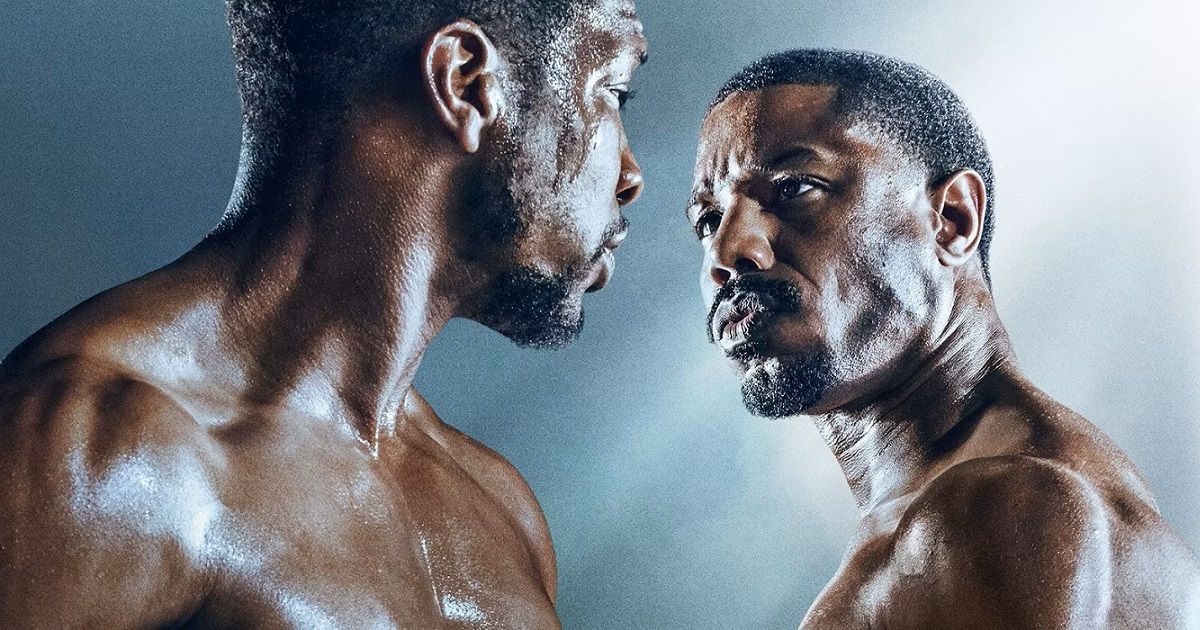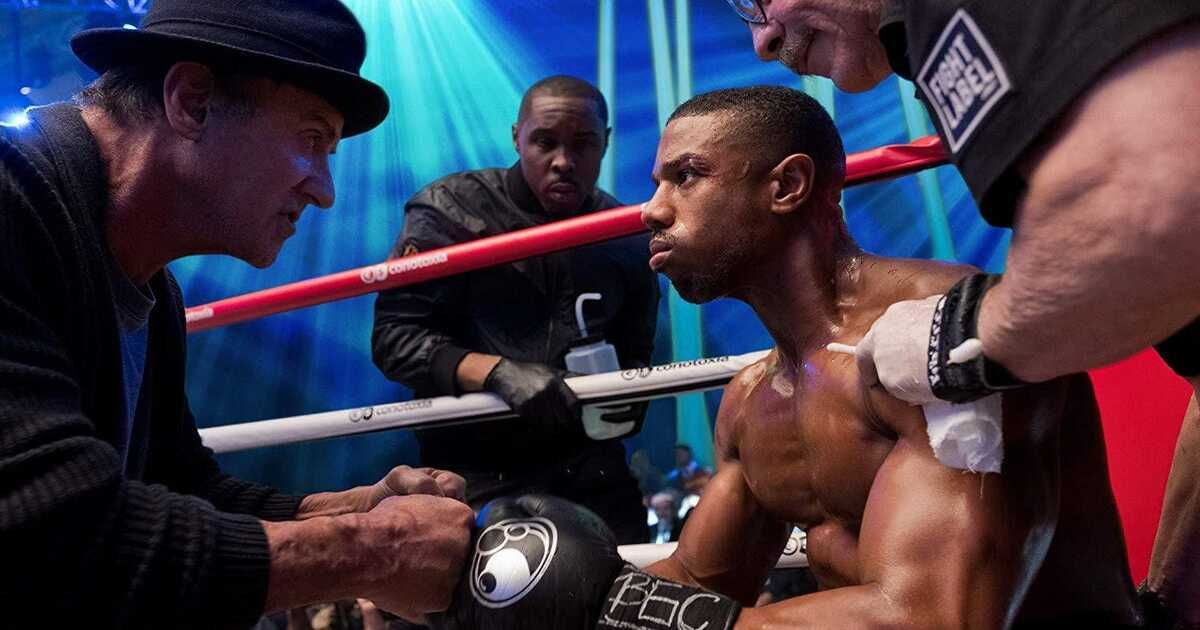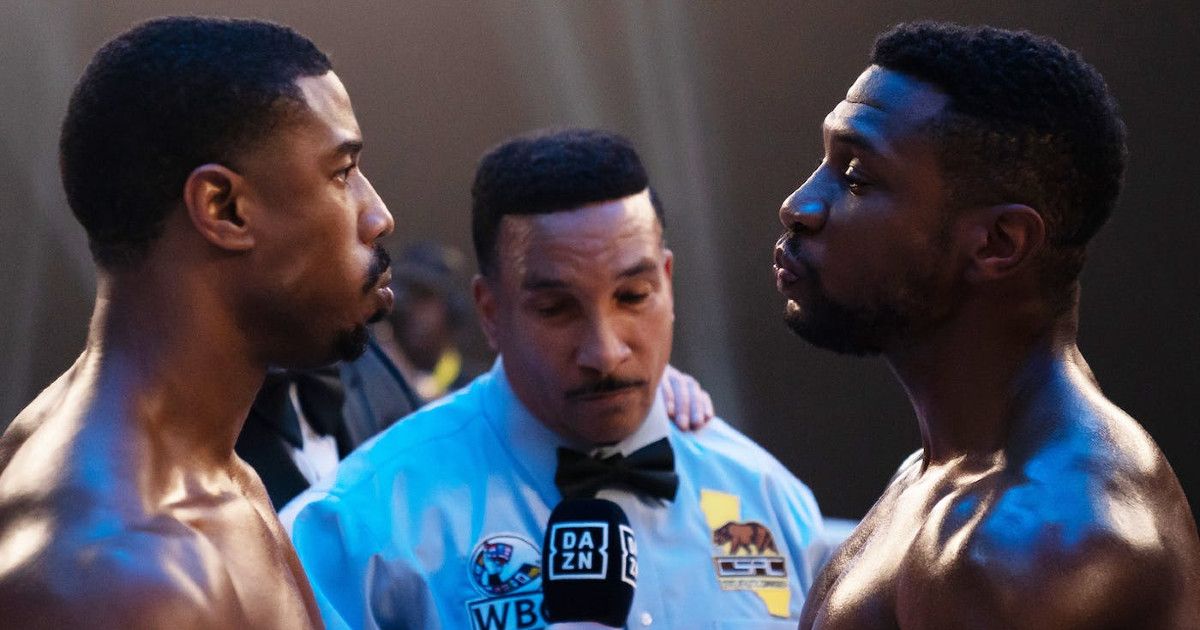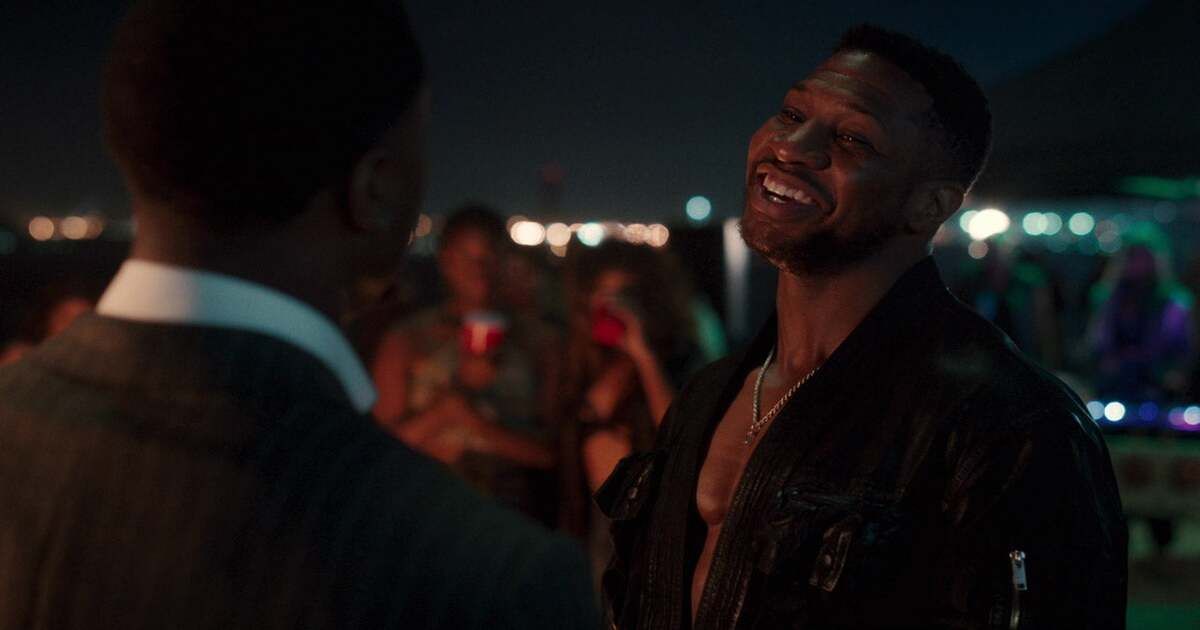Warning: This article contains spoilers for Creed III.
After the success of 2015’s Creed, fans and critics alike were happy to see the Rocky franchise head into a new direction. With the announcement of Ryan Coogler at the helm, Michael B. Jordan starring, and Sylvester Stallone returning as the iconic Rocky Balboa, the project was in good hands. The film grossed nearly $200 million worldwide against a budget of $35 million, received mostly positive reviews, and ensured we would see Adonis “Donnie” Creed in the ring again. 2018’s Creed II would see Stallone and Jordan reprise their earlier roles under the direction of Steven Caple Jr. The film received generally positive reviews and once again was a success at the box office, thus guaranteeing another sequel.
Fast-forward to 2022, when news of a third Creed film would surface. Despite Stallone’s absence, fans of the franchise were excited to see what direction MGM would take the franchise in; Creed III premiered to favorable reviews and a solid performance at the box office in March 2023.
The addition of Jonathan Majors as the film’s antagonist genuinely intrigued audiences as the trailer footage of the Ant-Man and the Wasp: Quantumania (2023) star portrayed him as a genuine threat to the life Creed worked hard to build, all in the name of proving he’s the better boxer. Creed III is an interesting film because it is the first blockbuster film since 2018’s Black Panther to feature both an African-American protagonist and antagonist. Whereas Black Panther’s thematic question was, “what does it take to be king,” Creed III asks, “how does a lack of mentorship and opportunity affect people, specifically Black men, from disenfranchised communities?”
No Role Models
As evident by the film’s refusal to force its messaging down its audience’s throat, subtlety is one of Creed III’s greatest strengths. At no point during the film’s hour and fifty-seven-minute runtime does the film slow down or stop itself, so it can preach to audiences about how disenfranchisement can affect Black men. The film simply shows it. From the film’s beginning, we see the adolescent versions of Damian “Diamond Dame” Anderson, played by Spence Moore II, and the titular Creed, played by Thaddeus J. Mixon, driving through Los Angeles late at night to an underground boxing event. After Damian makes quick work of his opponent, he boasts to young Creed how he intends to spend his money and eventually become the undisputed boxing heavyweight champion of the world.
Unfortunately for Damian, he’s swiftly arrested after an altercation outside the venue and spends the next eighteen years of his life incarcerated. As seen in Creed, Adonis would eventually find himself in juvenile detention centers, but at least his adoptive mother kept in contact with him and helped him get his life back on track. Moreover, the legendary boxer Rocky Balboa would eventually take him under his wing and help shape Creed into the man he is today. Unfortunately for Damian, he never had that kind of guidance and instead had to survive prison.
A positive role model can significantly impact a young person’s future. With the many systemic issues still plaguing the Black community, one could argue many Black men face a disproportionately higher rate of discrimination than men from other ethnic communities. The prejudice many Black men face often pressures them into making questionable decisions and landing in jail or prison, thus reinforcing the importance of good role models. Despite initially rejecting his upbringing, Creed eventually accepts that it helped make him a better man. Damian’s failures largely stemmed from a severe lack of positive influences in favor of closing off his emotions and surviving the rigors of life.
The War Within
During the climactic fight between Creed and Damian, there is a moment where the action focuses purely on the two men in a nightmare-like sequence. The cheering audience and venue theatrics are nonexistent and replaced with thudding punches, grunts, blood, and sweat. This scene was a unique way to show audiences what the proverbial fight against one’s self is like and, more importantly, how difficult it is. For a few brief moments, the two men disregard their formal boxing training and engage in an all-out slugfest, each punch harder and more intense than the last.
Creed represented the side of many Black men who chose the right path, and Damian represented men in the community who did not. People are complex and comprised of both good and bad qualities, and this scene, as brief as it was, did an excellent job showing what that fight looks like for many of us. Interestingly, Creed wore white, and Damian wore black during this scene, and Creed’s victory over Damian conveyed to the audience, specifically young Black men, how important it is to win the internal war.
My Brother’s Keeper
After Creed defeats Damian, the two men have a heartfelt exchange about their past and their plans for the future. Creed expresses he wants to live a peaceful life with his family and continue to usher in the next generation of great boxers. Moreover, Creed apologizes to Damian for his lack of support during his old friend’s incarceration and confesses he should have done more to help him once his career flourished. Surprisingly, Damian admits all the anger, rage, and hurt he displayed against Creed throughout the film was projecting, and he further confesses his failures in life are directly his fault. Creed and Damian make amends with their childhood handshake, and the film heavily implies the two men might eventually restore their friendship by the film’s end.
This scene was a powerful way to end the film because it conveyed to its target audience the importance of ownership, forgiveness, and effective communication. Black men are often pressured into guarding themselves against others at an early age by their peers and family members as it will help them survive life. We’re told not to let others see us cry, to get over things, and to solve our issues instead of seeking therapy. These lessons of tough love create barriers and make it much more challenging than it already is to express ourselves and relate to others, and as seen in Damian’s storyline, carry a lot of baggage and trauma. After going through the motions with Creed and Damian, it was cathartic to see them put the negativity behind them and wish each other well. With talks of a fourth Creed film in the works, it would be amazing to see these two back in the ring again - this time as brothers and not enemies.
Creed III is currently playing in theaters.




